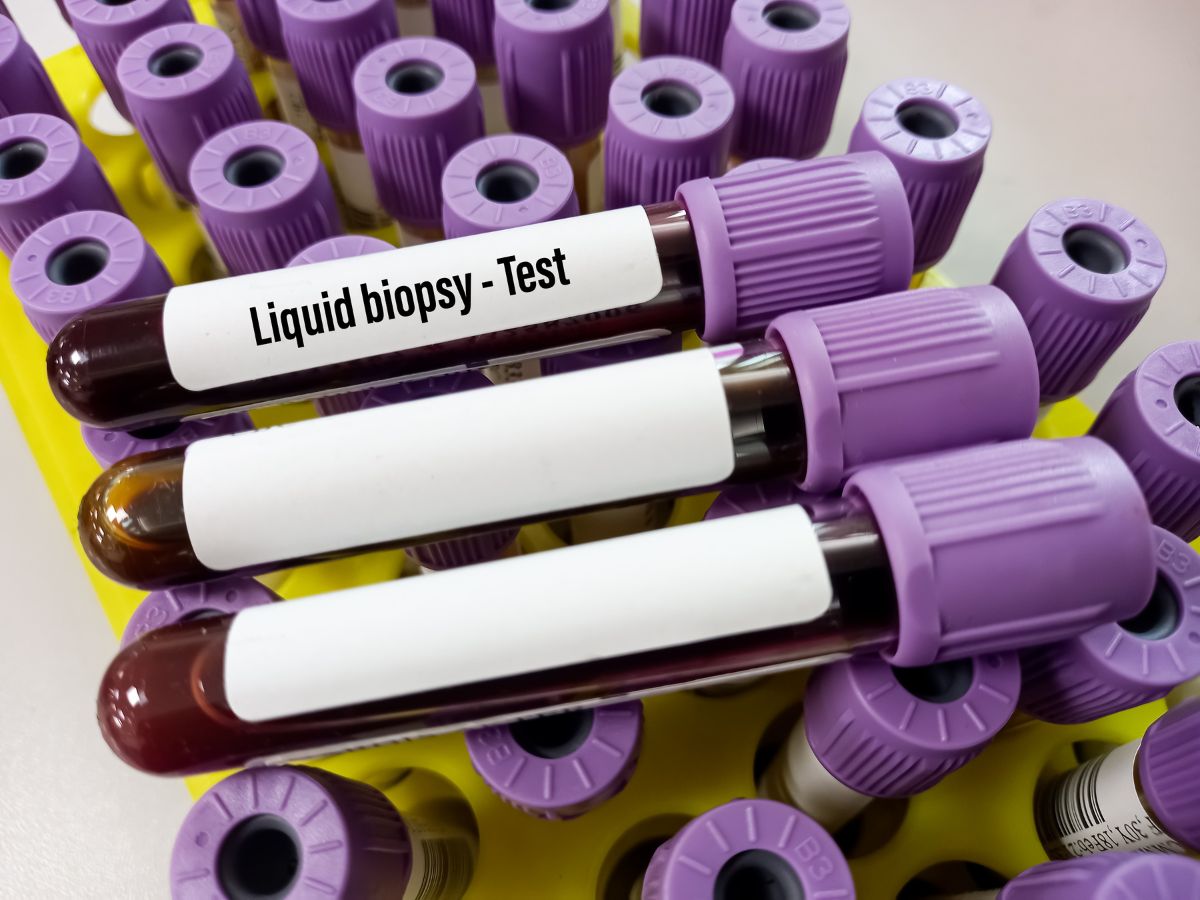By Heather Dorsey, Evidence Review Manager, M.S., CGC and Kelly Athman, Senior Director of Medical Affairs, M.S., CGC
What is a liquid biopsy anyway? Your mind may be swirling with this and other questions, especially when it comes to more media coverage on these types of tests, like the recent article in The New York Times (gated content) about their increasing use in screening for cancer. Liquid biopsy testing has become somewhat of a nebulous term in the world of genomics and medicine. But how we talk about these technologies and reference them is important. It can help to clarify what is liquid biopsy technology, what it can really do, and why they may be suitable for some situations and not yet others.

Research has shown that patients are more willing to participate in medication safety if encouraged to do so by healthcare professionals. As genetic counselors serving by your side on the patient’s healthcare team, it is our responsibility to take a proactive approach to help them be active participants in their care.
What a liquid biopsy is really tasked to do
Liquid biopsy testing first came onto the commercial market for people with cancer -as a test aimed at identifying specific tumor-related DNA biomarkers in the blood to help guide decisions about which therapies to use for treatment. Although blood is the most common sample type, liquid biopsies in general can start with any body fluid sample, such as urine. A liquid biopsy testing seeks out DNA fragments of interest (from tumors or other indicators of disease) among a sea of background DNA called cell-free DNA (cfDNA) that is always circulating in the blood because it has broken away from cells as a part of the natural process of new cells being generated and old cells dying off. That’s why InformedDNA believes cell-free DNA testing is actually a more precise term than liquid biopsy testing as it more clearly describes what is liquid biopsy test and what it actually does.
More importantly, finding these critical biomarkers is a tall task for all liquid biopsy testing technologies available today. That’s because if you have cancer, it makes sense that tumor cells are also breaking down, and some of the cfDNA in the blood is coming from these dead cells. This makes it very difficult for current technologies to know whether the DNA found in the blood is truly the cell-free DNA biomarkers that the liquid biopsy testing aims to test to learn useful information about any living tumor cells in the body, or just leftover DNA from tumor cells that have died (not worrisome). . That’s why the gold standard is still a tissue biopsy of the living tumor itself, when possible.
Liquid biopsy uses
In oncology, cfDNA tests, referred to as liquid biopsies, come in many forms based on biomarkers that have been associated with treatment for different cancer types. In NSCLC (non-small-cell lung carcinoma), for example, providers may use liquid biopsy testing to look for an EGFR (epidermal growth factor receptor) mutation to help them decide if TKIs (tyrosine kinase inhibitors) may be beneficial for treatment, or an ALK (anaplastic lymphoma kinase) fusion which may offer meaningful information for providers considering the use of alectinib (ALECENSA). Liquid biopsies are also being used for breast cancer patients to detect the PIK3CA gene mutation where physicians can consider alpelisib (PIQRAY) for treatment. These are two areas of proven use for liquid biopsies in oncology today. There are also examples of available tests lacking evidence to support their use.
Emerging uses
Other applications of cfDNA testing offer tremendous hope but are still considered emerging areas for use. Liquid biopsy testing may be useful for minimal residual disease (MRD) detection to predict the risk for cancer recurrence after, for example, surgical removal of a tumor in early-stage colorectal cancer patients. Recently, the DYNAMIC trial was published. The results suggest the use of liquid biopsy testing to guide decision-making regarding chemotherapy might help patients. However, of the patients who had their cancer come back after surgery, surprisingly, twice as many had reassuring liquid biopsy results compared to those whose results suggested they were at high risk for recurrence. The patients who ultimately have a recurrence are the ones you would want to get chemotherapy treatment, but instead, they would be advised against treatment based on their liquid biopsy testing results. Thus more work is needed to understand how these results can improve care without increasing risk of patient harm.
It’s still important to remember that all of these emerging areas offer excitement and hope, but few have proven what their clinical impact is, so far. As the New York Times article above mentions, multi-cancer early detection (MCED) tests that are designed to screen for cancer are another example of liquid biopsies with promise, but yet unproven for use, in clinical settings. This type of testing may even help to predict responses to treatments like immunotherapy for some cancer patients, but more evidence is required to bring to the clinical setting.
Conclusion
There’s a lot of optimism around the use of liquid biopsy technologies to support a wide variety of situations in oncology care. Patients can feel hopeful that these new technologies are out there and being evaluated for clinical use. Some patients may even get involved in these research studies, which can help move this research forward. But in order for liquid biopsy technologies to reach their full potential, there must be more clarity around what is liquid biopsy testing is actually used for, such as treatment decision-making, recurrence detection, or preventative screening. At the same time, providers will need to stay on top of advancing technologies and demand more clinical evidence before putting them to use in clinical practice. Payors will benefit from having direct access to genetic expertise for their clinical review and medical policy teams to clearly understand the potential value and limitation of any new liquid biopsy test coming on to the market and each clinical scenario where they may be applied. For all of these audiences, genomics experts can serve as a critical guide to help navigate through current realities around the lack of evidence and towards the potential that some of these tests have to positively impact clinical care going forward. At the same time, genetics experts can point you to the best, evidence-based testing approach available today to inform care decisions and improve outcomes.
At InformedDNA, we leverage the expertise of the most experienced full-time staff of lab-independent, board-certified genetics specialists in the U.S. to help ensure that patients, health plans, health systems and hospitals, pharmaceutical companies, and healthcare providers have access to the highest quality genetics services.
If you’d like to learn more about InformedDNA and the expert genetics services we offer, please get in touch; click here to submit a brief form, or give us a call: 844-846-3763.

